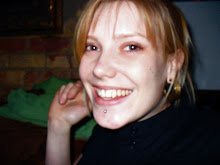
Quick note on Three Cups of Tea: It is a damn good story about some guy who got it in his head to build schools for kids in the Middle East. Amazingly, he did it and still does it. He got obsessed and just did/does it.
I'm glad his story has made it so far into the North American mainstream. There are many racist people over here using up all the oxygen. If you are one of them (believing Afghani and/or Pakistani people to be generally inferior to you or generally predisposed to violence) this book may successfully cram a little factual information into your oxygen-saturated brain. Or, if you care about, but are relatively ignorant of (as I am), the sociopolitical situation in Pakistan and Afghanistan... this book may successfully cram a little factual information into your oxygen-saturated brain.
A final point. If you are a college-aged aspiring philanthropist, readying your oxygen-saturated brain for an anti-glamorous (yet en vogue), anti-missionary (yet value-laden) stint of volun-tourism in the Middle East: Let this story inspire you to save the world, but also let it challenge you to reconsider your methods for doing so. I'm skeptical (believe it or not) about North America's ability to produce many more authentic Greg Mortensons, and fearful that the illusion of aid (readily created by the droves of eager college-aged volun-tourists taking off to Africa, South America, and the middle East) is concealing our need to imagine more ways of providing it. While as North Americans, we are often in good positions to provide help where it's needed, our efforts often fall flat. Greg Mortenson and this, his publication of Three Cups of Tea, do not fall flat. This story is a lesson in the importance of generosity and compassion, but more importantly, personal education. Let's take this lesson and put it towards a refresher for North American philanthropy.




